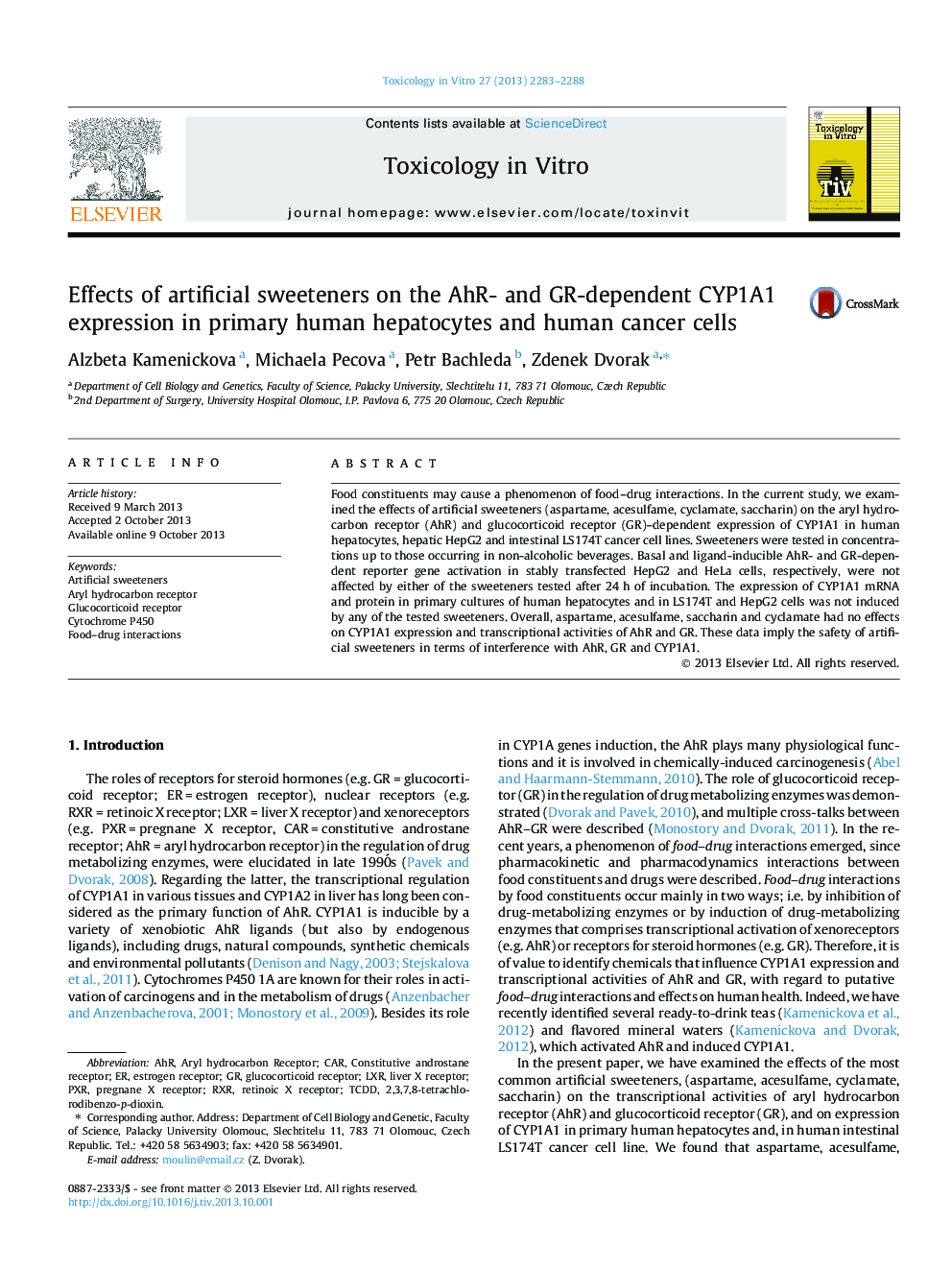| Article ID | Journal | Published Year | Pages | File Type |
|---|---|---|---|---|
| 2602522 | Toxicology in Vitro | 2013 | 6 Pages |
•Food constituents may interact with drug metabolizing pathways.•AhR, GR and CYP1A1 are involved in drug metabolism and carcinogenesis.•We examined effects of artificial sweeteners on AhR, GR and CYP1A1.•Human hepatocytes and cell lines HepG2 and LS174T were used as the models.•Tested sweeteners had no effect on AhR, GR and CYP1A1.
Food constituents may cause a phenomenon of food–drug interactions. In the current study, we examined the effects of artificial sweeteners (aspartame, acesulfame, cyclamate, saccharin) on the aryl hydrocarbon receptor (AhR) and glucocorticoid receptor (GR)–dependent expression of CYP1A1 in human hepatocytes, hepatic HepG2 and intestinal LS174T cancer cell lines. Sweeteners were tested in concentrations up to those occurring in non-alcoholic beverages. Basal and ligand-inducible AhR- and GR-dependent reporter gene activation in stably transfected HepG2 and HeLa cells, respectively, were not affected by either of the sweeteners tested after 24 h of incubation. The expression of CYP1A1 mRNA and protein in primary cultures of human hepatocytes and in LS174T and HepG2 cells was not induced by any of the tested sweeteners. Overall, aspartame, acesulfame, saccharin and cyclamate had no effects on CYP1A1 expression and transcriptional activities of AhR and GR. These data imply the safety of artificial sweeteners in terms of interference with AhR, GR and CYP1A1.
Graphical abstractFigure optionsDownload full-size imageDownload as PowerPoint slide
